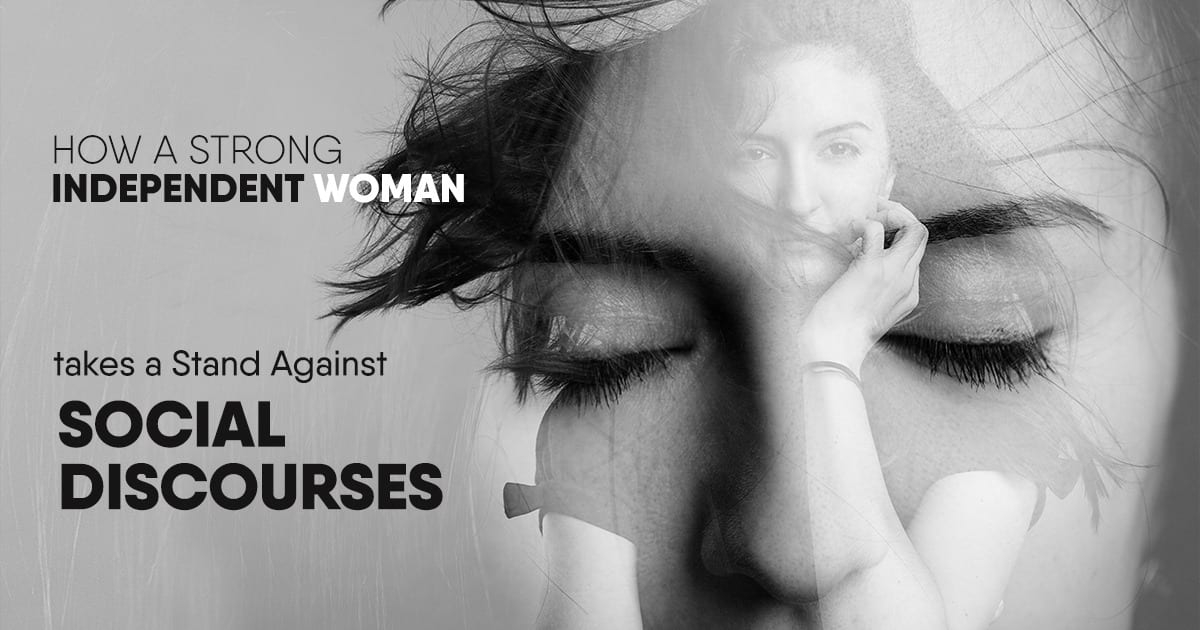
While some progress has undoubtedly been made in gender equality, there is still such a reluctance to embrace the concept of a strong independent woman in the workplace, in relationships, and in society as a whole.
Women and shame also continue to be a pervasive issue across every area of life. Speaking out in various ways is something women also tend to struggle with because of the fear of backlash or a negative response.
Because of these fears and the sense of shame that women are often made to feel, they tend to experience mental health symptoms.
Women internalize shame, and that can even trigger substance use disorders. It’s so important to start to recognize these issues in our own lives and other places to begin to speak out and combat these systemic problems.
Men also play an important role as allies in recognizing strong women and encouraging their voices to be heard.
Why Is There a Fear of Strong Independent Women?
While this certainly doesn’t hold true across the board, the reality is that some people remain intimidated or even fearful of strong, independent women. Even when a woman is confident in her power, she tends to find herself facing obstacles in a world that remains male-dominated.
Whether it’s at work or in relationships, strength and independence tend to lead men to question their value and role. We live in a society dominated by the idea of men as providers. Despite how much things have changed significantly in the most recent decades, some men still have lingering insecurities about not being perceived in a certain way.
It’s challenging to let go of things ingrained in your thoughts, reactions, and general behavior.
It’s not just men who are intimidated by strong women. Many times other women may feel off-put by this or intimidated. That may be due to their feelings about what it means to be a woman as well.
For example, a woman may believe that other women should be quieter and fade into the background, and when they see someone who isn’t following that, they could feel like their beliefs are being challenged.
Why Don’t Women Speak Up?
While some women do speak up consistently at work and in relationships, there is a fear factor that prevents them from doing it for other women. Why is that? There are often shared concerns among women who don’t want to speak up.
- There’s a fear of being seen as “crazy” if you speak up or speak out. As women, you may subconsciously see women who share their thoughts or ideas as overly aggressive or emotional, so you could remain silent to avoid being labeled that way
. - Sometimes women grow up learning that they should be sweet and pleasant, and if you speak out on anything, you’re going against that.
- Unfortunately, the reality is that sometimes when women speak out on different topics, they become the victim of smear campaigns. We saw that during the #MeToo movement.
- Women may be afraid they’ll say something wrong and be criticized more so than men. A lot of times, females are quiet because they want to protect themselves.
- Research from the University of Cambridge found women are two-and-a-half times less likely to ask questions during an academic seminar than men. Researchers looked at hundreds of workshops in 10 countries.
When women aren’t participating in conversations, asking questions, and sharing their perspectives, then they aren’t being represented. For example, there are fewer female junior scholars in many academic institutions.
Women and Shame
A lot of what’s discussed above can tie back into the concept of shame. Women often feel shame over things that a man would be made to feel proud about, whether that’s accomplishments at work, sexuality, or being a strong, independent person.
We can even make ourselves feel shame when we go against a social norm we believe in, even if we don’t realize we hold that belief.

When women feel shame, it then becomes something internalized that can cause them to cast their entire being in a negative light. Shame can lead to depression and low self-esteem, among other mental health conditions.
There was a study carried out by researchers from the University of Toronto and Queens University in Ontario. It included volunteers between the ages of 11 and 16. Those participants who were more likely to experience shame were also more likely to have symptoms of depression.
There’s also a link between being prone to shame and anxiety disorders.
There’s the separate but similar concept of guilt that can be part of what holds you back from portraying yourself as a strong, independent woman.
The big difference between shame and guilt is that guilt stems from viewing a specific action negatively.
For example, you may feel like you’ve done something to another negative person and affected them poorly. You internalize this and begin to feel like you’re an inadequate or unworthy person.
Addiction in Women
When you don’t view yourself as a strong independent woman, you may be more likely to deal with mental health problems and substance misuse. The way women experience addiction can be different in many ways than men’s experiences, and treatment has to address these differences.
Some of the factors that play a role in women’s addiction include:
- Relationship problems—for example, women are more likely to experience a relapse when going through issues in their marriage or when they have child custody issues.
- Food and body concerns—eating disorders are frequently linked to substance use disorders.
- Self-esteem—many young girls who begin using drugs or alcohol early on in their lives do so to increase their confidence.
- Sexuality—many women realize that their substance use is tied to their sexuality. For example, they might feel shame about the sexual abuse they were a victim of, and that then leads them to use substances to overcome those feelings of shame.
Reaching Out, Speaking Truths, and Building Connections
So what does all this mean for women right now? First, to become a strong, independent woman, you need to take steps to get healthy in terms of your mental health. If you’re dealing with a substance use disorder, treatment is an important step. Don’t let shame hold you back from the care you need and deserve.
You can not only work toward having a healthier relationship with yourself and freeing yourself from shame, but you can also learn how to speak openly and honestly and build connections with other women.
Even if you aren’t dealing with a substance use disorder, it’s important to work toward having a healthy relationship with yourself that will allow you to be more comfortable speaking out in every area of your life.
When you share your own experiences with others, it also helps shine a light on pervasive problems. Women need to have their voices heard.
You can also support other women. Rather than viewing a strong, independent woman as bossy or domineering, start to reframe your perspective. Think about how you feel if a man were to behave in the same way. It might be that if that were the case, you would see him as someone in authority and deserving of respect.
Shift how you view yourself and other women and encourage others to do the same.
Find your strength and support with us and see how powerful we can be when women lift each other up. Anchored Tides Recovery has an all-woman staff and an all-women client base to create a safe environment for women to grow.



























